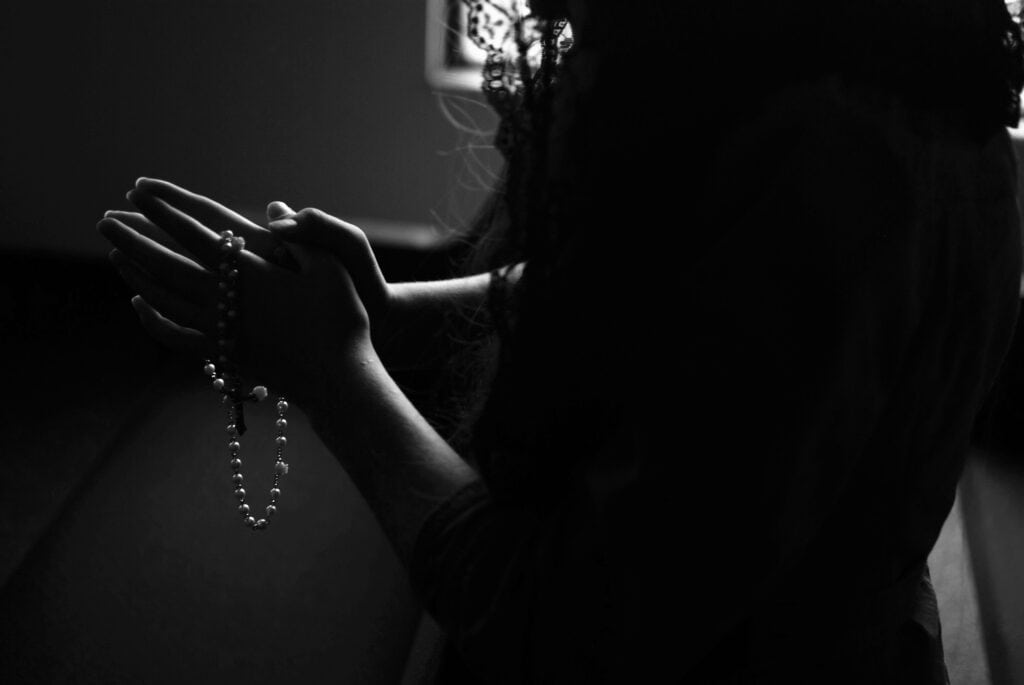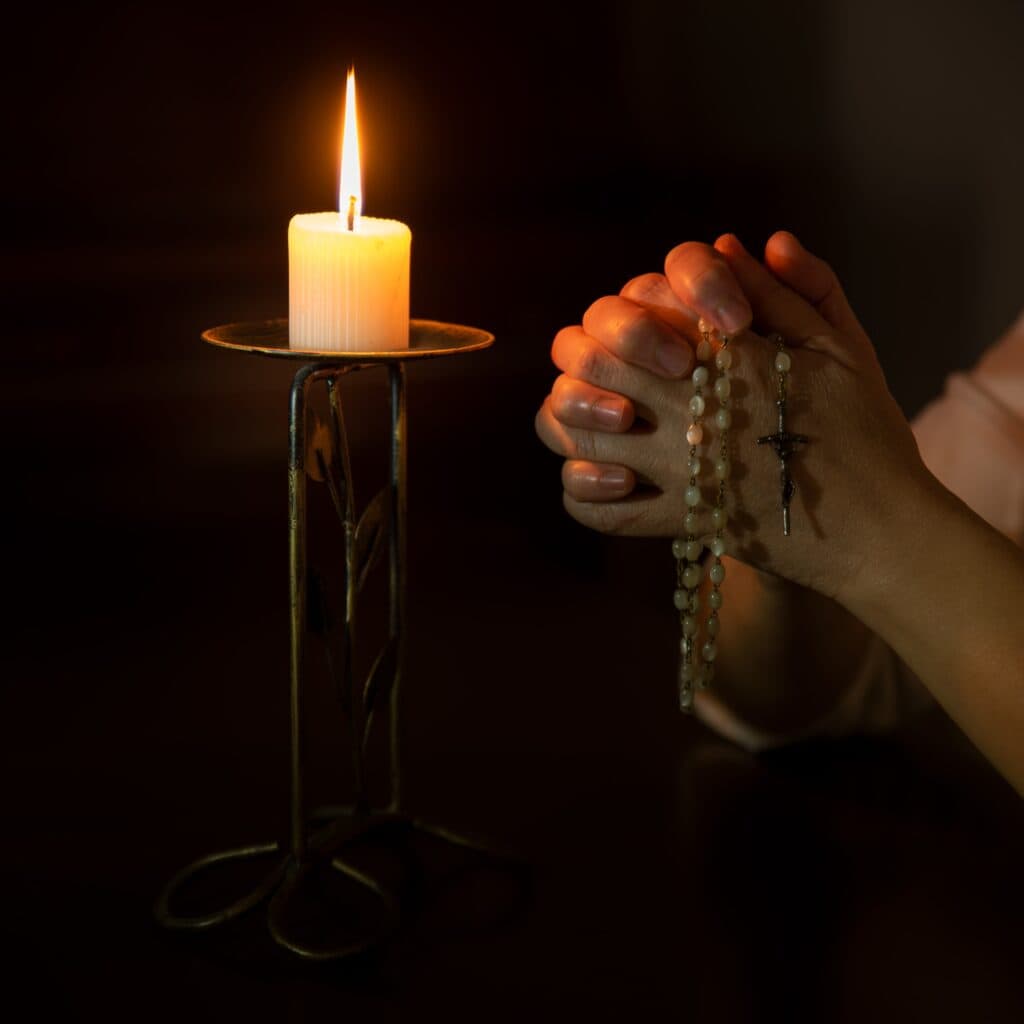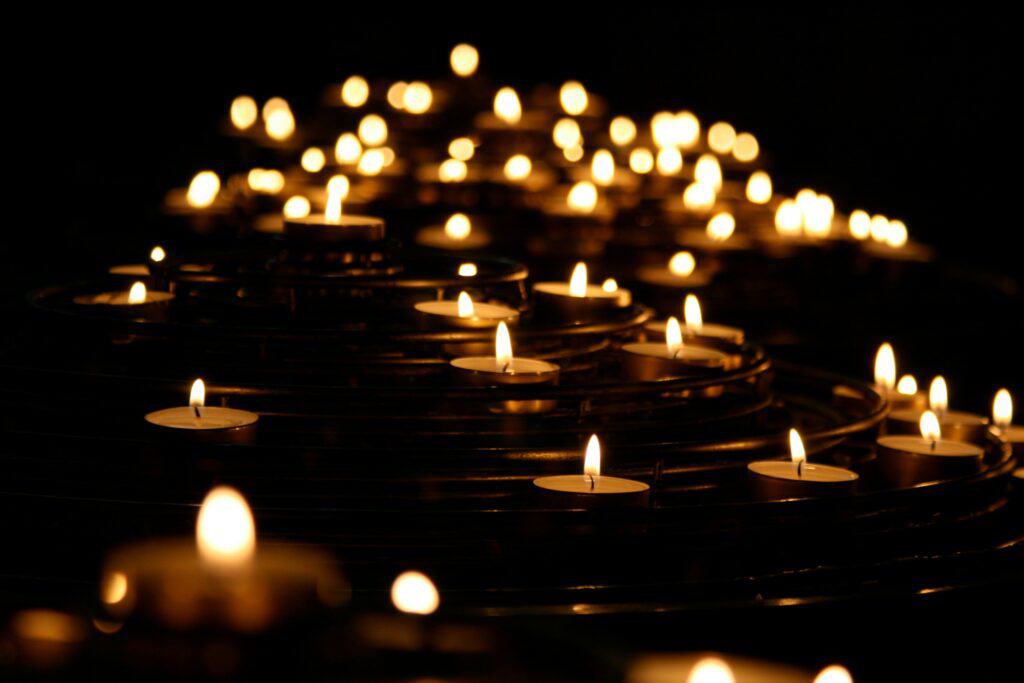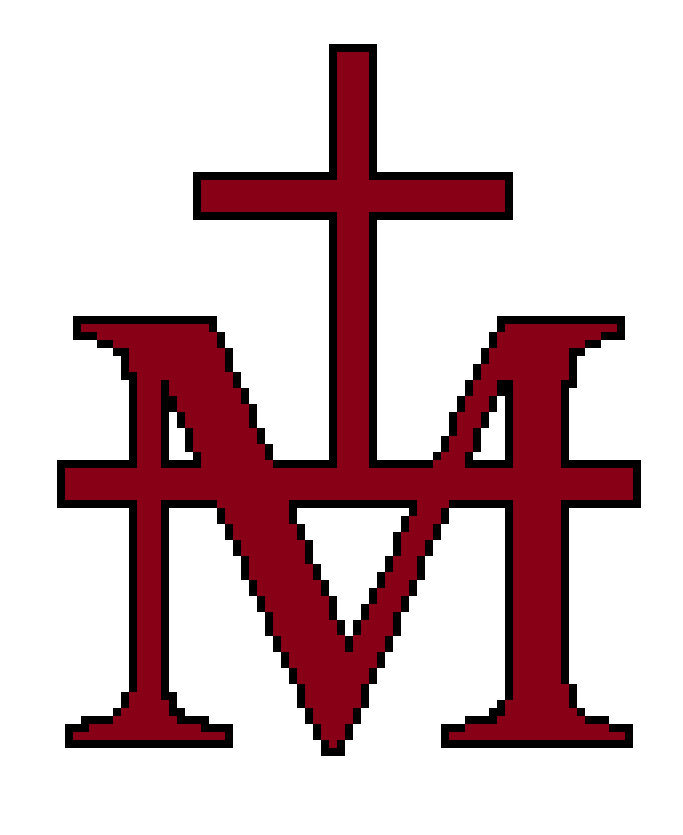Our Father Prayer

The Our Father is one of the most important prayers in the Christian faith. Jesus Himself taught it to His disciples in Matthew 6:9-13. Because of this, it is often called the Lord’s Prayer. Catholics pray this prayer daily, both in private and at Mass. It is a perfect model for all prayers because it teaches believers to speak to God with trust, humility, and love.
The Our Father Prayer
Our Father,
who art in heaven, hallowed be Thy name;
Thy kingdom come;
Thy will be done on earth as it is in heaven.
Give us this day our daily bread;
and forgive us our trespasses as we forgive those who trespass against us;
and lead us not into temptation;
but deliver us from evil. Amen
But what is the true purpose of the Our Father? Why did Jesus give us these exact words? Every part of this prayer has deep meaning. It shows Christians how to seek God’s will, ask for their needs, and avoid temptation. This article will explore what the Our Father means and how it applies to everyday life.
The Our Father Begins with a Relationship
The Our Father starts with “Our Father, who art in heaven.” This first line reminds Christians of their special relationship with God. He is not a distant ruler but a loving Father. In Scripture, Jesus often calls God “Father” because He wants believers to see God’s love (John 20:17).
By calling God “Our Father,” this prayer shows that all Christians are part of one family. It is not just a personal prayer but a prayer for the whole Church. Every time Catholics pray this prayer, they remember that they are united with other believers.
Hallowed Be Thy Name – Honoring God
The following line says, “Hallowed be Thy name.” The word hallowed means “holy” or “sacred.” This part of the prayer reminds believers to respect and honor God’s name, which is powerful in the Bible. The Second Commandment says, “Thou shalt not take the name of the Lord thy God in vain” (Exodus 20:7).
When people speak God’s name, they should do so with love and reverence. This is why Catholics avoid using God’s name in anger or disrespect. Instead, they should use His name in prayer, thanksgiving, and worship.
Thy Kingdom Come – Seeking God’s Will on Earth
The prayer continues with, “Thy kingdom come.” This phrase expresses a deep desire for God’s kingdom to be present on earth. Jesus spoke often about the kingdom of God. He taught that it is both a future hope and a present reality.
The kingdom grows when people follow Christ and live in holiness. Whenever someone chooses love over hate, truth over lies, or mercy over judgment, they help build God’s kingdom.
By saying, “Thy kingdom come,” Catholics ask God to rule over their hearts, families, and communities. They also pray for Christ’s final coming, when His kingdom will be complete.
Thy Will Be Done – Surrendering to God’s Will
The following line, “Thy will be done on earth as it is in heaven,” teaches surrender. It shows that Christians should desire God’s will above their own. In Scripture, Jesus prayed this same idea before His crucifixion:
“Father, if Thou wilt, remove this chalice from Me: but yet not My will, but Thine be done.” (Luke 22:42)
This is not always easy. People often want to follow their own plans. But true peace comes from trusting God’s will, even when it is difficult. By praying this part of the Our Father, Catholics ask for the strength to follow God’s plan daily.

Give Us This Day Our Daily Bread – Trusting in God’s Provision
The line “Give us this day our daily bread” teaches trust in God’s care. The prayer asks for daily needs, both physical and spiritual.
Physically, it reminds believers that God provides food, shelter, and other necessities for life. Spiritually, it points to the Holy Eucharist, the Bread of Life (John 6:35). God’s greatest gift is Jesus Himself in the Catholic Mass.
This part of the prayer also teaches gratitude. Every meal, every blessing, comes from God. By asking for “daily bread,” Christians learn to trust God one day at a time.
Forgive Us Our Trespasses – The Call to Forgive
The Our Father continues, “Forgive us our trespasses, as we forgive those who trespass against us.” This is a serious request. Jesus warns that those who refuse to forgive others will not be forgiven (Matthew 6:15).
Everyone sins and needs God’s mercy. But God expects His children to show the same mercy to others. Holding grudges or seeking revenge blocks God’s grace.
Christians should practice forgiveness, even when it is difficult. This part of the prayer reminds them to let go of anger and choose love.
Lead Us Not Into Temptation – Avoiding Sin
The line “Lead us not into temptation” does not mean God tempts people. Scripture says, “Let no man, when he is tempted, say that he is tempted by God.” (James 1:13)
Instead, this prayer asks God for help in avoiding temptation. The devil and the world constantly try to lead people into sin. Praying this keeps believers aware of their weaknesses and reminds them to rely on God’s strength.
Avoiding temptation may mean avoiding certain places, people, or habits. Catholics should also use the Sacraments, especially Confession and the Eucharist, to grow in holiness.
Deliver Us from Evil – Seeking Protection
The final request in the Our Father is “Deliver us from evil.” This is a plea for protection against sin, suffering, and the devil. Jesus defeated evil through His death and resurrection, but the battle is not over.
Christians must fight against evil daily. This includes avoiding sin, resisting bad influences, and standing up for what is right.
One of the best ways to seek God’s protection is through prayer. The Our Father is a powerful prayer against evil because it comes directly from Jesus.

Conclusion – The Perfect Prayer
The Our Father is the perfect prayer because it comes from Jesus Himself. It teaches Christians to honor God, seek His will, trust in His care, and avoid evil.
By praying this prayer daily, Catholics grow closer to God and learn to live as His children. It is more than just words—it is a guide for a holy life.
Every Catholic should reflect on the meaning of the Our Father and let it shape their heart and actions. Praying it with faith can transform lives and bring people closer to God.
Access All Prayers of the Rosary
For your convenience, we offer a PDF containing all the prayers of the Rosary (available for desktop and tablet users). This free resource can be downloaded, shared, and printed to help with learning and memorizing the Rosary.
In addition, you can explore our dedicated webpage, All Prayers of the Rosary, where you’ll find each prayer clearly listed and explained.
Click the button below to download the PDF and deepen your devotion to the Rosary.

Charles Rogers is a resident of South Carolina and a retired computer programmer by trade. Raised in various Christian denominations, he always believed in Jesus Christ. In 2012, he began experiencing authentic spiritual encounters with the Blessed Virgin Mary, which led him on a seven-year journey at her hand, that included alcohol addiction, a widow maker heart attack and death and conversion to the Catholic Faith. He is the exclusive author and owner of Two Percent Survival, a website dedicated to and created in honor of the Holy Mother. Feel free to email Charles at twopercentsurvival@gmail.com.

We strive to provide the most complete and highest quality material we can for you, our readers. Although not perfect,
it is our desire and prayer that you benefit from our efforts.

